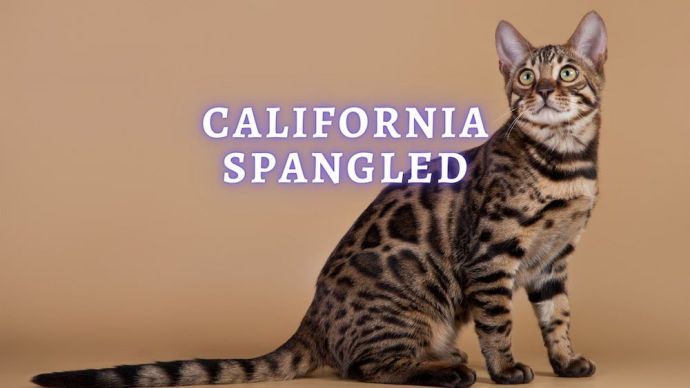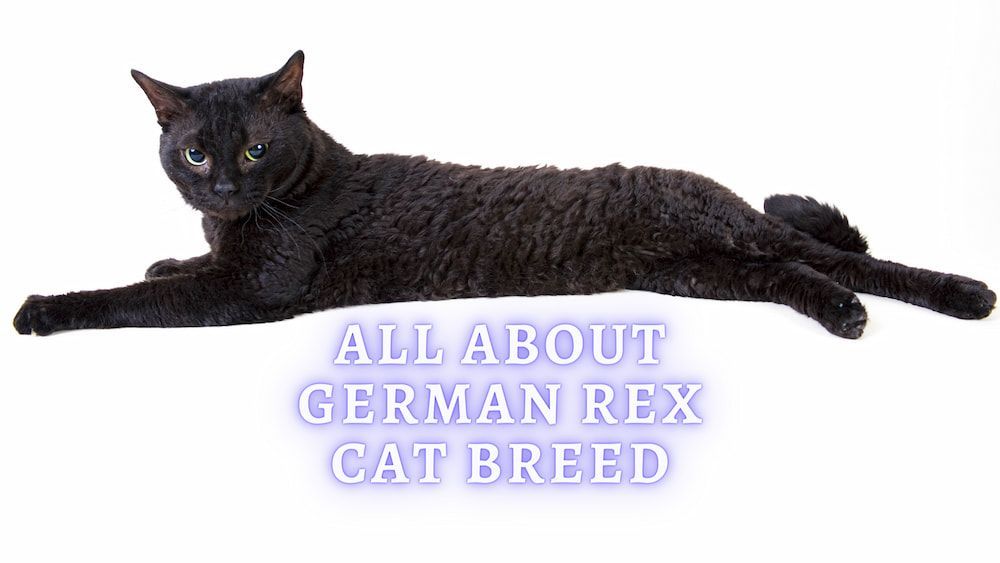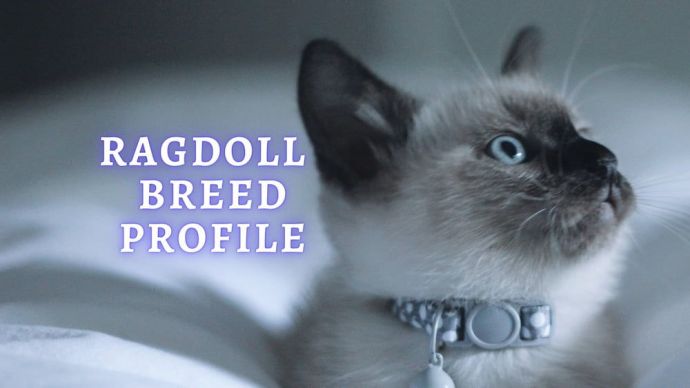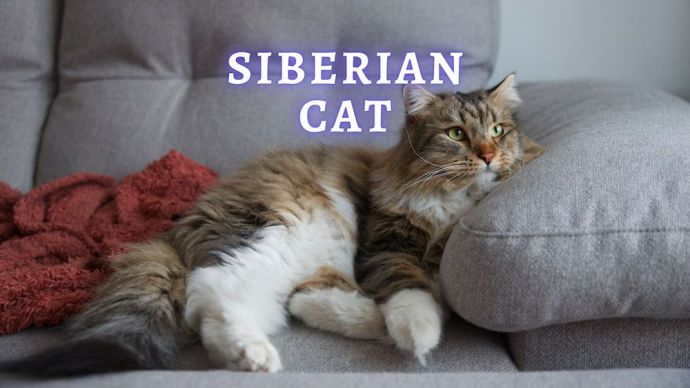German Rex: Breed History, Appearance, and Temperament
Written by:
Author: Seb Jenkins
Seb is a professional SEO writer with a degree in Journalism, he has five years of experience in writing and editing. Seb specializes in topics like dog and cat breeds, aquarium guides, and pet care. He is passionate about educating and entertaining animal owners worldwide. In his spare time, Seb enjoys writing fiction novels.
View all 83 articlesLearn about our editorial process and veterinary review board.
Viewed: 95
Updated on: 06/08/2023
The German Rex cat is an absolute pleasure to have around the family home. They are very social and friendly with people and have an extremely playful personality. If you are looking for an active and loving cat who will entertain you and cuddle you in equal measure, the German Rex could be for you. However, as with any breed of cat, you should always do your research before welcoming them into your home. Fortunately for you, we have a compiled and everything you need to know a guide on German Rex cats right here.
Characteristics
The following are the main characteristics shown by the German Rex cat:
| Height | 10-12 inches. |
| Weight | 6-10 pounds |
| Lifespan | 12-15 years |
| Origin | Germany |
| Group | Small short-haired |
| Coat Color and Patterns | Solid Color, Tortoiseshell, Bicolor, Tricolor/Calico, Tabby, Ticking, Smoke, Shaded, Pointed |
| Temperament | Family-friendly, playful, and loyal |
| Intelligence | High |
| Social skills | Very good with people. |
| People skills | Loyal and loves to play. |
| Children | Great within the family dynamic. |
Breed History
Not only is the German Rex cat a great pet to have around the house, but the breed in general is very mysterious. In the 1940s, a unique cat with wavy hair was found in the basement of a German hospital and eventually named Laemmchen. Her litters were the very start of the German Rex cat breed, although they remain rare to this day. The German Rex didn’t really take off until the 1960s across France, England and the US. The Cornish Rex, which is similar on a genetic basis, is much more common worldwide. However, you can still find German Rex cats in shelters or rescue groups, so be sure to check that out. The German Rex is recognized officially by the Federation Internationale Feline.
Interesting Facts
- The German Rex is incredibly soft because they have no guard hairs
- These small cats appear much bigger due to their very long legs
- The German Rex is one of the rarest cat breeds in the world
Temperament and Personality
The German Rex is a very active, playful, and loving cat. However, with those traits comes a need for attention, so be prepared to give them lots of playtimes, as well as cuddles on the couch. German Rex cats are known to forge strong bonds with their owners. As such, they love to be picked up and petted as much as possible.
The German Rex is best suited to someone who is going to be actively involved in the cat’s life on a day-to-day basis. So if you live alone and work long hours away from the house, it may not be the best purchase for you.
| Category | Rating (out of 5) |
| Affectionate with family | 4 |
| Shedding | 2 |
| Health | 3 |
| Playfulness | 4 |
| Vocal | 2 |
| Kid-friendly | 4 |
| Stranger-friendly | 4 |
| Easy to groom | 2 |
| Pet-friendly | 4 |
| Intelligence | 4 |
RELATED: Most Affectionate Cat Breeds
Feeding and Diet
The German Rex does not have any specific dietary needs. However, they do best when given a high-quality diet of fresh food – ideally something with high protein that includes real meat or fish as a primary ingredient.
READ MORE: Best Dry Cat Food (Vet Review)
Grooming and Shedding
The German Rex has a number of different coat color possibilities, including black, white, fawn, chocolate and tabby, bicolor, smoke, and calico patterns. When you groom this coat, most cats of this breed will get by with one brush per week. Essentially, keeping up with this brushing routine will reduce the number of hairballs and the amount of fur matting. Unfortunately, because of its wavy hair, the German Rex cannot produce the necessary amount of oil to maintain skin and hair health. Therefore, you will need to give them regular baths to reduce the risk of skin irritation and greasy hair.
Health Care
Fortunately, the German Rex is generally a very healthy cat. However, you still need to set up regular vet appointments in order to keep an eye on them. While there are not any consistent breed health problems to be aware of, that doesn’t mean your individual German Rex is immune to everything – so keep an eye on them. Your vet should be able to help you design a care routine for your feline friend.
We recommend that you invest in a scratching post for the home in order to give them somewhere to scratch healthily, while also keeping their claws in good condition. Their nails need to do in good condition to keep up with their active lifestyle. The last thing you want is to get scratched when you pick them up too.
As with any breed, you should regularly check your cat’s ears for any sign of infection or dirt build-up. You should also look to start a tooth brushing routine with your German Rex. Your vet should be able to give you breed-specific tips and tricks on that front.
German Rex cats are very adaptable when it comes to living in different climates, although they prefer warmer temperatures if given the choice. Despite this, always make an effort to provide shade and fresh water for them in the summer.
Exercise
German Rex cats love nothing more than to play and show off in front of their owners at any given opportunity. Make sure to give them lots of space and toys to play with because they will run, jump and climb all day. A big cat tree can be a great investment if you have the space. Interactive toys are particularly enjoyed due to the German Rex cat’s high intelligence. Believe it or not, you can even teach them to play fetch!
Adoption
As we explained above, the German Rex cat is very rare. In fact, it is among the rarest cat breeds in the world. As such, the easiest place to find one of these cats is through a breeder. Because they are so rare, the chances of finding one in a shelter or adoption agency are pretty slim. Of course, we always recommend giving a home to a cat who needs one rather than purchasing a bred kitten, but that may prove tricky if you have your heart set on a German Rex.
If you want to try and find a German Rex adoption, these are a good place to start:
READ MORE: Adopting an Adult Cat: Important Things to Know (Veterinary Advice)
Breeders
This may be your best chance of finding a German Rex local to you. This breed is still rare across the world, although there are breeding programs set up to keep them going. Some simple research into your local area should reveal some breeding options to you. Always select a breeder with good reviews to ensure that you are getting a healthy German Rex kitten rather than something else.
Conclusion
And there we have it, everything you need to know about the German Rex cat breed. They truly are a joy to have around the family home and will be a welcome addition to your group. If you have any further questions, feel free to get in touch or post a message in the comments section below. We wish you all the luck with your new pet.
FAQs
How long do German Rex cats live?
German Rex cats usually live between 12 and 15 years.
How much is a German Rex cat?
German Rex cats often cost between $500 and $1000.
Are German Rex cats hypoallergenic?
Yes, these small, short-haired cats are considered to be hypoallergenic.
Do German Rex cats shed?
While German Rex cats do shed, it is far less than many other cat breeds and is rarely a problem as long as you keep them well-groomed and brushed.
 Cat Breeds California Spangled: California Spangled Cat Personality, Breed History, and Interesting Facts
Cat Breeds California Spangled: California Spangled Cat Personality, Breed History, and Interesting Facts - 244
- 0
 Cat Care Why Does My Cat Attack My Legs? 10 Reasons Why and What To Do About It (Vet-Approved Advice)
Cat Care Why Does My Cat Attack My Legs? 10 Reasons Why and What To Do About It (Vet-Approved Advice) - 45095
- 21
 Cat Veterinary Tips Cat Stomach Gurgling: Vet Advice on Why is Your Cat Stomach Gurgling?
Cat Veterinary Tips Cat Stomach Gurgling: Vet Advice on Why is Your Cat Stomach Gurgling? - 33745
- 4
 Cat Veterinary Tips My Cat Lost its Voice: Can Cats get Laryngitis? (Vet Advice)
Cat Veterinary Tips My Cat Lost its Voice: Can Cats get Laryngitis? (Vet Advice) - 22894
- 13
























